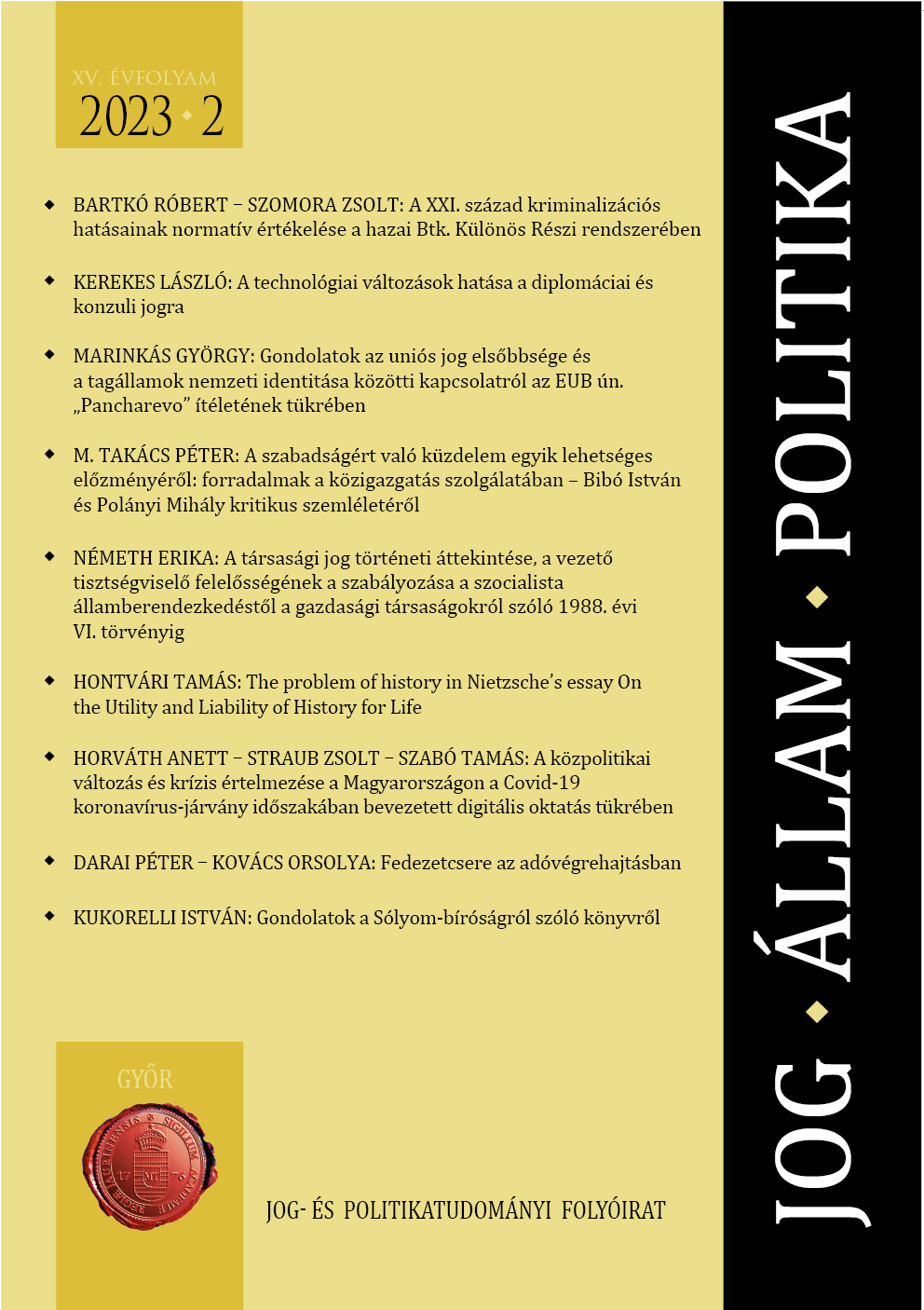The problem of history in Nietzsche’s essay On the Utility and Liability of History for Life
ABSTRACT
This paper examines Nietzsche’s concerns over the study of history in his essay On The Utility and Liability of History for Life. In this essay, Nietzsche attempts to show that an excessive scientific historicising poses a danger to the vitality of the present and argues that history must be used in a way that supports and enhances life. Nietzsche’s concerns regarding the study of history operate over several interconnected levels that range from the cultural and existential to the epistemological. In this paper, the author argues that Nietzsche’s concerns are well founded, grounded in a novel conceptualisation of the temporal structure and the historical nature of human existence. These insights allow Nietzsche to reconstruct the problem of history as an issue of the proper way of relating to one’s own historical condition, and to recognise the dangers of self-alienation due to an excessive scientific historicising. holding the position in question has been held liable in a number of cases, applying the rules of the Company Act and the Civil Code.
KEYWORDS
* Nietzsche * early writings * cultural and historical analysis * critique of scientific historicism * temporality * historicity *
IRODALOM
Ansell-Pearson, Keith (2013): ‚Holding on to the Sublime’: On Nietzsche’s Early ‚Unfashionable’ Project. In: Gemes, Ken – Richardson, John (ed.): The Oxford Handbook of Nietzsche. Oxford University Press, Oxford. DOI: https://doi.org/10.1093/oxfordhb/9780199534647.013.0011.
Bambach, Charles R. (1990): History and Ontology: A Reading of Nietzsche’s Second “Untimely Meditation”. In: Philosophy Today. Volume 34. Issue 3. DOI: https://doi.org/10.5840/philtoday199034315.
Heidegger, Martin (1962): Being and Time. (Translated by Macquarrie, John and Robinson, Edward.) Blackwell, Oxford.
Heidegger, Martin (1977): Nietzsche II: The Eternal Recurrence of the Same. (Translated by Krell, David.) Harper & Row, New York.
Heller, Erich (1972): Nietzsche’s ‚Untimely Meditations’: A Hermeneutical Study. In: The Journal of Aesthetics and Art Criticism. Volume 30. Issue 3. Spring. JSTOR. (Available at: www.jstor.org/stable/429509.).
Kaufmann, Walter (1997): Introduction to Untimely Meditations by Friedrich Nietzsche. (Translated by Hollingdale, R. J.) Cambridge University Press, New York.
Kaufmann, Walter (1974): Nietzsche: Philosopher, Psychologist, Antichrist. Princeton University Press, New Jersey.
Lemm, Vanessa (2009): Nietzsche’s animal philosophy: culture, politics, and the animality of the human being. Fordham University Press, New York.
Nietzsche, Friedrich (1995): Unfashionable observations. (Translated by Gray, Richard T.) Stanford University Press, Stanford, California.
Nietzsche, Friedrich (1999): Untimely Meditations II: On the Uses and Disadvantages of History for Life. The Birth of Tragedy and Other Writings. Cambridge University Press, New York.
Nietzsche, Friedrich (1974): The Gay Science. (Translated by Kaufmann, Walter.) Vintage Books, New York.
Nietzsche, Friedrich (2001): The Gay Science. (Translated by Nauckhoff, Josefine.) Cambridge University Press, New York.
Ricoeur, Paul (2006): Memory, history, forgetting. University of Chicago Press, Chicago.
Safranski, Rüdiger (2003): Nietzsche: A Philosophical Biography. (Translated by Frisch, Shelley.) W. W. Norton & Company, New York.
Sigurdson, Richard (2004): Jacob Burckhardt’s Social and Political Thought. 2nd Ed. University of Toronto Press, Scholarly Publishing Division, Toronto.
Schacht, Richard (1992): Nietzsche. Routledge, New York.

